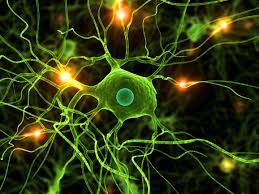Brain cells in Parkinson’s disease exhaust themselves and die prematurely, according to new research.
Brain cells affected by the disease die prematurely because they are prone to burning out like an overheating motor. Scientists said they have found the cells targeted by the disease require unusually high levels of energy to carry out their job of controlling movement.
The researchers from University of Montreal studied the disease in mice and focused on the role of mitochondria, which enable cells to grow and release chemicals such as dopamine, a neurotransmitter deficient in Parkinson’s sufferers.
They discovered that this overheating could be caused by the fact that these neurons have complex structure with a large number of extensions, like a tree with numerous branches. Providing energy to these branches may make the neurons vulnerable leading to malfunction and cell death.
“Like a motor constantly running at high speed, these neurons need to produce an incredible amount of energy to function. They appear to exhaust themselves and die prematurely,” said Louis Eric Trudeau, lead researcher and professor at the University of Montreal. “To use the analogy of a motor, a car that overheats will burn significantly more fuel and end up at the garage more often,” he added.
The scientists hope that the study findings could help create better treatment options particularly new meds to help neurons reduce their energy consumption or produce energy more efficiently.
Parkinson’s disease is a degenerative disorder affecting the motor system of the CNS. The illness results from the death of dopamine-generating cells in the substantia nigra, a region of the mesencephalon. Early symptoms include rigidity, inflexibility, slowness of movement and difficulty with walking. The disease is more common in older people, with most cases occurring after the age of 50. IMAGE/morningsignout.com

